We're living in an increasingly data-driven world, and nowhere is this more apparent than in the healthcare field.
With federal funding tied to patient outcomes and health systems examining every facet of healthcare for ways to better facilitate care, more and more agencies are hiring Nursing Informatics specialists to sift through the data to find compelling new ways to optimize the healthcare experience and improve population outcomes.
The two-year Master of Science in Nursing program with an Informatics track from Nebraska Methodist College will prepare graduates to fill the in-demand role of the informaticist in a healthcare setting. This degree, the only one of its kind in the region, will equip nurses with the tools they need to stand at the intersection of big data and the healthcare field, developing well-crafted insights and turning those insights into actionable health system policies that optimize patient outcomes.
As electronic records proliferate, critical analysis and implementation of new procedures at a system-wide level has never been more important.
The online format caters to working nurses and allows them to balance educational goals with personal and professional responsibilities.
Nurse Informatics Salary
Salaries for nurse informaticists vary widely in the U.S. and are based upon many factors, including geography, job description, specialty and experience. Healthcare Information and Management Systems Society (HIMSS) conducted a survey in 2022 that found a median salary of $100,000 across the United States, with nursing informatics certification holders generating a higher average salary than those who don’t.
Want to learn more? Watch our most recent Virtual Information Session.



